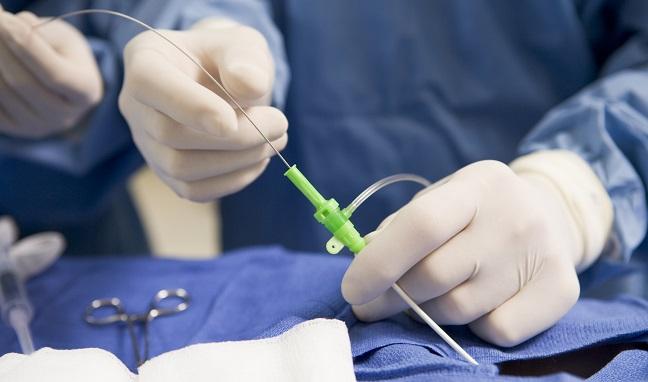Cardiology Jupiter: Clearing up the confusion
Cardiology Jupiter: Clearing up the confusion
Blog Article
Recognizing the Importance of Cardiology in Modern Healthcare Solutions
Cardiology plays an important duty in modern healthcare, particularly as heart problem remains to be the leading cause of mortality worldwide. Advancements in diagnostics and treatment have transformed client care, allowing earlier interventions and enhanced results. The change in the direction of preventative cardiology encourages people to manage their health proactively. As technology remains to evolve, the assimilation of cutting-edge remedies might additionally redefine cardiology's influence on public health, prompting a more detailed exam of arising patterns and their implications.
The Prevalence of Heart Problem and Its Effect On Public Health
Although heart problem continues to be the leading reason of fatality around the world, its impact extends much past specific people to affect public wellness systems and economies. The high frequency of heart problem positions a significant stress on health care sources, necessitating enhanced funding for treatment, avoidance, and recovery programs. Public wellness efforts should resolve threat variables such as weight problems, smoking, and inactive way of livings, which contribute greatly to the increasing occurrence of heart conditions.Moreover, the economic problem connected with heart illness is tremendous, encompassing not only straight clinical costs however additionally indirect expenses connected to shed performance and premature mortality. Neighborhoods encounter challenges in managing these expenses, usually resulting in variations in medical care accessibility and results. As the populace ages and lifestyle-related threats continue to intensify, the seriousness for reliable cardiology interventions ends up being paramount. As a result, attending to heart disease is not only an issue of specific wellness however likewise an essential public health priority.
Breakthroughs in Heart Diagnostics and Imaging Techniques
Current improvements in heart diagnostics and imaging methods have transformed the field of cardiology, enhancing the ability to spot and keep track of cardiovascular disease. Strategies such as heart MRI, CT angiography, and echocardiography have actually come to be increasingly sophisticated, providing detailed pictures of cardiac structures and features. These methods permit the very early recognition of problems like coronary artery illness, cardiac arrest, and valvular disorders.Moreover, developments in non-invasive diagnostics, such as wearable technology and remote monitoring tools, have actually empowered patients and doctor. These devices assist in real-time tracking of heart rhythms and various other important indications, leading to prompt interventions. In addition, expert system is being incorporated right into imaging analysis, improving precision and efficiency in medical diagnosis.
Developments in Therapy Options for Heart Issues
Recent improvements in cardiology have caused significant advancements in treatment choices for heart problems. These include innovative surgical methods that enhance procedural end results and emerging medicines that supply new opportunities for treatment. As the field progresses, these innovations play a crucial duty in improving individual treatment and outcomes.
Advanced Surgical Techniques
Advancements in medical techniques have changed the landscape of cardiology, supplying new expect individuals with heart disease. Minimally invasive procedures, such as catheter-based treatments, have actually greatly decreased healing times and health center stays. Methods like robotic-assisted surgical treatment boost accuracy, allowing surgeons to navigate complicated anatomical frameworks with higher precision. Improvements in imaging innovation assist in real-time visualization throughout treatments, enhancing results. Transcatheter aortic valve replacement (TAVR) exemplifies an advancement in treating aortic stenosis, enabling valve substitute without open-heart surgical procedure. In addition, hybrid strategies that incorporate medical and catheter-based techniques offer tailored solutions for various heart problems. These sophisticated surgical techniques not just boost individual security but also increase therapy choices, underscoring the critical duty of advancement in contemporary cardiology practices.
Arising Drugs and Therapies
As the landscape of cardiology remains to progress, arising treatments and medications play a pivotal duty in enhancing treatment choices for heart disease. Technologies such as unique anticoagulants and advanced lipid-lowering representatives have transformed the administration of heart diseases, greatly lowering individual morbidity and death. Furthermore, the development of genetics therapies and regenerative medication provides promising opportunities for treating problems previously considered permanent. Medical tests are constantly disclosing the efficiency of these therapies, pressing the limits of typical treatments. Moreover, the assimilation of digital wellness technologies facilitates customized medication, permitting tailored therapy plans based on hereditary and way of living elements. Jointly, these improvements emphasize the vibrant nature of cardiology, boosting patient outcomes and redefining criteria of treatment in modern medical care.
The Function of Preventive Cardiology in Patient Care
Precautionary cardiology plays an essential duty in person care by focusing on the identification of danger elements that contribute to heart disease. Via way of life modification techniques and early discovery strategies, doctor can successfully reduce the incidence of cardiovascular events - Cardiology care. This aggressive method not only enhances client results however likewise advertises long-lasting wellness
Threat Element Identification
While heart diseases remain a leading source of morbidity and death worldwide, efficient danger element recognition acts as a keystone of precautionary cardiology. Identifying danger factors such as high blood pressure, household, diabetes, and hyperlipidemia background is vital for very early intervention. Medical care experts utilize different evaluating techniques to assess these aspects, permitting customized preventative measures. In addition, recognizing a patient's way of living selections, such as cigarette smoking and physical lack of exercise, further notifies danger assessments. This extensive examination makes it possible for medical professionals to create customized care plans intended at mitigating dangers. By focusing on risk variable identification, health care systems can improve client outcomes and minimize the general concern of heart diseases, ultimately adding to improved public wellness approaches and resource allowance.
Way Of Living Alteration Strategies
A multitude of research studies highlights the essential function of way of life adjustment approaches in minimizing cardiovascular disease danger. These methods include nutritional adjustments, increased exercise, smoking cessation, and weight monitoring. By taking on a heart-healthy diet abundant in fruits, veggies, entire grains, and lean healthy proteins, individuals can lower cholesterol degrees and blood stress. Routine exercise reinforces the heart and boosts general cardio health. Furthermore, quitting smoking greatly minimizes the danger of heart illness and boosts recuperation prices for those with status quo. Weight management even more adds to cardiovascular health and wellness by minimizing various other danger variables such as diabetes mellitus and hypertension. Applying these way of life changes not only advertises individual well-being yet additionally functions as a foundation of preventive cardiology in person care.
Early Detection Methods
Lifestyle adjustments significantly add to reducing cardio condition risks, yet they are most efficient when coupled with very early detection methods. Precautionary cardiology stresses the significance of determining possible heart problems prior to they intensify into significant conditions. Methods such as high blood pressure tracking, cholesterol testing, and progressed imaging technologies like echocardiograms play critical roles in assessing cardio health. Biomarkers and genetic testing likewise improve the accuracy of very early detection, enabling tailored precautionary techniques. Routine heart danger analyses empower doctor to interfere proactively, possibly stopping heart strikes and strokes (Cardiologist near me). By incorporating these very early detection techniques into regular treatment, individuals can take advantage of prompt way of living treatments and targeted therapies, ultimately improving and improving outcomes lifestyle
Integrating Innovation Into Cardiology Practices
As improvements in innovation proceed to improve numerous fields, the combination of ingenious tools and systems into cardiology methods has actually become important for improving person care and outcomes. Telemedicine systems permit cardiologists to check individuals from another location, enhancing access to care while reducing the concern on medical care facilities. Wearable devices, such as smartwatches, make it possible for continuous heart rate tracking, alerting both physicians and clients to prospective issues in real-time. In visit this web-site addition, expert system (AI) is being made use of to evaluate large quantities of heart data, helping in very early medical diagnosis and individualized treatment strategies. Advanced imaging techniques, consisting of 3D echocardiography, boost visualization of heart frameworks, resulting in much more accurate treatments. Electronic health and wellness records (EHRs) enhance individual information management, making certain that cardiologists have instant accessibility to vital information. With each other, these technological advancements are changing cardiology, promoting aggressive administration look at more info and improved wellness results for clients with cardiovascular conditions.
The Significance of Patient Education and Involvement
Person education and learning and involvement play a pivotal duty in the administration of cardiovascular health and wellness. By outfitting individuals with expertise regarding their conditions, treatment alternatives, and way of life changes, medical care companies equip people to take an active function in their treatment. This positive approach can cause improved adherence to suggested medicines, nutritional changes, and workout routines, inevitably lowering the threat of complications.Engagement also promotes a solid patient-provider relationship, motivating open communication and count on. When patients really feel educated and involved, they are extra likely to voice issues and ask questions, which can result in much better scientific outcomes. Additionally, instructional resources, such as workshops or electronic systems, can improve understanding and advertise self-management strategies. In general, prioritizing patient education and learning and involvement is necessary for enhancing cardio health, enhancing top quality of life, and decreasing healthcare expenses associated with cardio conditions.
Future Trends in Cardiology and Their Possible Influence

Frequently Asked Questions
What Way Of Living Modifications Can Minimize Heart Condition Threat?
The present question addresses way of life adjustments that can substantially minimize heart problem danger. Cardiology. Embracing a well balanced diet plan, participating in routine physical activity, keeping a healthy weight, taking care of anxiety, and preventing cigarette can notably improve cardio wellness
Just How Can I Acknowledge Very Early Indications of Heart Issues?
Identifying very early signs of heart problems includes monitoring news signs such as breast pain, shortness of breath, exhaustion, and uneven heart beat. Timely awareness of these indications can trigger necessary clinical assessment and treatment for far better end results.
What Are the Distinctions Between Cardiologists and Cardiac Surgeons?
The distinctions in between cardiologists and heart doctors hinge on their functions; cardiologists largely identify and take care of heart disease through non-invasive methods, while heart surgeons perform surgeries to correct structural heart issues. Each plays a crucial, distinctive duty.

How Frequently Should I Get My Heart Health Checked?
The regularity of heart health and wellness checks varies based on private danger factors. Normally, grownups ought to go through analyses each to 2 years, while those with status quo might call for more constant evaluations as recommended by health care experts.
What Function Does Genetics Play in Heart Condition Danger?
Genes substantially affects cardiovascular disease risk, with familial patterns showing acquired conditions. Details genes can predispose individuals to hypertension, cholesterol concerns, and various other cardio problems, highlighting the relevance of hereditary testing in assessing heart health. Heart illness continues to be the leading reason of fatality around the world, its effect expands far past specific clients to affect public wellness systems and economies. Public health and wellness initiatives should resolve risk variables such as obesity, smoking cigarettes, and sedentary way of lives, which contribute substantially to the rising incidence of heart conditions.Moreover, the economic problem linked with heart condition is immense, encompassing not only direct clinical prices yet additionally indirect expenditures related to lost productivity and premature mortality. Preventive cardiology plays a vital function in individual treatment by concentrating on the recognition of danger aspects that contribute to heart illness. Artificial knowledge (AI) and maker understanding are boosting diagnostics and person surveillance, making it possible for very early detection of heart diseases. The distinctions in between cardiologists and heart specialists lie in their roles; cardiologists primarily diagnose and handle heart problems through non-invasive techniques, while cardiac specialists execute medical treatments to deal with structural heart concerns.
Report this page